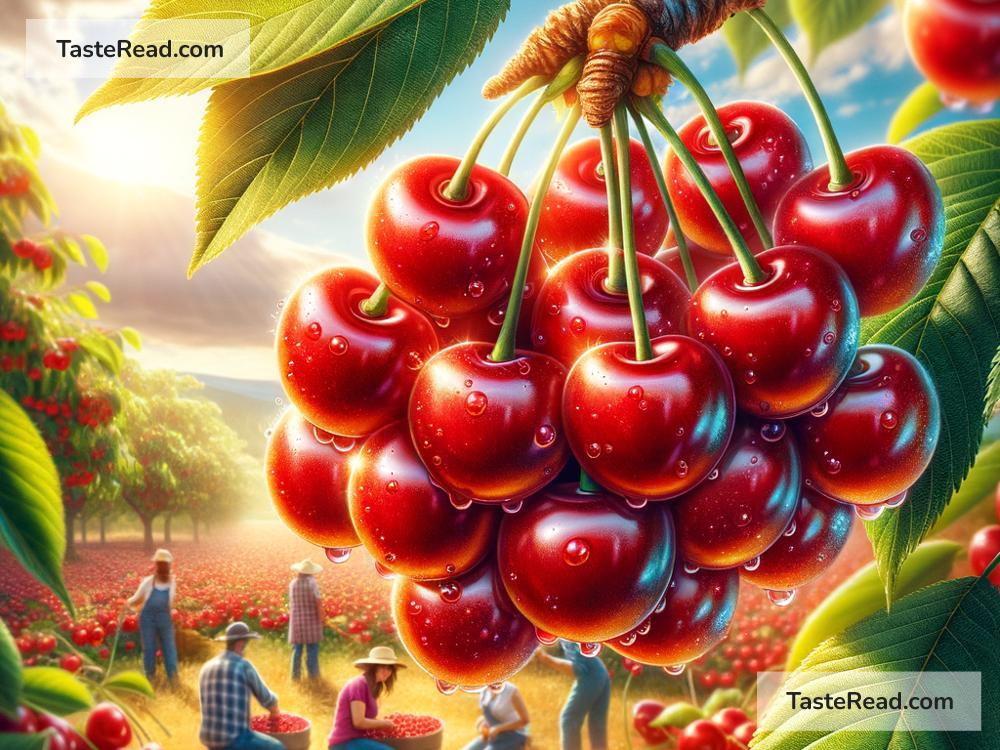Why Do Cherries Have Such a Short Harvest Season?
Cherries are often associated with the joy of summer. They’re sweet, juicy, and a treat many of us look forward to. But there’s one thing about cherries that leaves us longing for more—they’re only available for a very short time each year. Unlike apples or bananas, which we can find in grocery stores year-round, cherries seem to have a fleeting appearance in the market. Once you miss them, you have to wait an entire year to enjoy them again. So, why do cherries have such a short harvest season? Let’s dive into the reasons in simple terms.
Reason 1: Cherries Are a Seasonal Fruit
Cherries are highly seasonal, meaning they grow and ripen during a specific time of the year. Most cherry trees produce fruit during the summer, typically between late May and early July in the United States. The exact timing depends on the variety of cherries, as well as the climate conditions in the region where they are grown.
Unlike some other fruits, cherries can’t be stored fresh for a long period of time because they are delicate and perishable. Once they’re picked, the clock starts ticking. Within days, cherries begin to lose their freshness, so they need to be eaten or sold quickly. This is why you won’t see cherries sitting on grocery shelves for months at a time—they’re a true summer treat.
Reason 2: Cherry Trees Require Specific Growing Conditions
Cherry trees can be picky! They need specific weather and soil conditions to grow well. Most cherries are grown in regions with what’s called a “temperate” climate—one that isn’t too hot or too cold. In the U.S., Washington, Oregon, California, and Michigan are major cherry-producing states because their weather is just right for cherry farming.
But here’s the catch: cherry trees don’t like surprises in the weather. They need cold winters, but not so cold that the trees freeze. They need warm summers, but not so hot that the fruit gets damaged. If there’s a late freeze in spring or extreme heat in summer, the trees can suffer, and the harvest can shrink. This delicate balance means that cherry crops are vulnerable, and growers only get one shot each year to produce fruit.
Reason 3: The Harvest Period Is Short
Unlike some fruits that ripen gradually over weeks or months, cherries tend to ripen all at once. Once they’re ready to pick, farmers have a small window to harvest them—usually just a few weeks. If cherries are left on the tree for too long after ripening, they can spoil or be damaged by birds or weather. On the other hand, if they’re picked too early, they won’t taste as sweet and juicy.
Because of this tight harvesting period, growers need to act quickly to collect the cherries and get them to stores as fast as possible. But once the harvest is complete, that’s it for the year. Unlike some fruits, cherry trees only produce one crop per season. This limited harvest period contributes to the short availability of cherries.
Reason 4: Cherries Are Hard to Grow and Transport
Growing cherries isn’t easy. Farmers face a variety of challenges, including pests, diseases, and unpredictable weather. Late frost can kill cherry blossoms before they turn into fruit. Heavy rain can cause ripe cherries to split open. Even birds love cherries and can eat up a farmer’s precious harvest!
On top of these challenges, transporting cherries is tricky because they are fragile. Unlike apples or oranges, cherries bruise easily and can spoil quickly. Farmers and distributors have to work hard to keep cherries fresh, often using specialized packaging and cold storage. That’s why fresh cherries usually come with a slightly higher price tag—they require extra care to get from farm to table.
Reason 5: Supply and Demand
Finally, because cherries don’t last long and are only harvested once a year, their availability is limited. When something is limited, it often drives up demand. People rush to buy cherries while they’re fresh and in season, knowing they won’t be around for long.
In some ways, cherries’ short harvest season makes them special. They’re a treat we savor, and part of their charm is knowing we can’t have them all year long. The anticipation makes the experience all the sweeter.
Conclusion
Cherries have a short harvest season because they’re a seasonal fruit with very specific growing needs. They ripen quickly, are hard to store, and are vulnerable to weather, pests, and transportation challenges. While their fleeting appearance may leave us wanting more, it also makes cherries feel like a gift from summer—a symbol of warm days and sunshine.
So, next time cherries hit your local market, grab a bag and enjoy them while they’re here! Relish their sweetness and know that their short season is part of what makes them so special. After all, nature’s best treats are often worth the wait.


